Nutrition for Hormone Balance: Supporting Optimal Endocrine Function
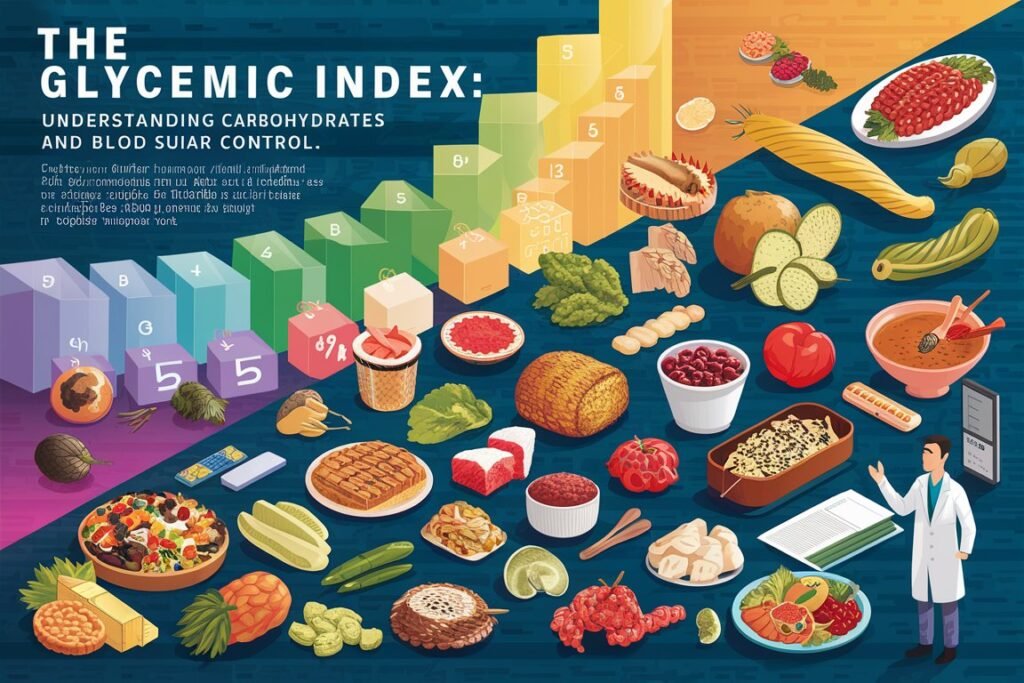
Hey there, my young and curious friends of 2024! It’s your favorite nutrition detective, Nita Sharda, here to take you on an exciting journey into the world of hormone health. Now, I know what you might be thinking – “Hormones? Isn’t that something only teenagers and grown-ups have to worry about?” But trust me, understanding how the foods we eat can affect our hormones is important for everyone, no matter what age we are.
Today, we’re going to put on our detective hats and investigate how nutrition can help keep our hormones in balance and support our endocrine system. But before we dive in, let me make one thing clear – this is not about putting anyone on a strict diet or making them feel bad about what they eat. It’s simply about empowering you with the knowledge and tools to make food choices that support your hormone health, now and in the future.
So, are you ready to solve the mystery of hormone-balancing nutrition with me? Let’s go!
What are Hormones?
First things first, let’s talk about what hormones actually are. Hormones are like little chemical messengers that travel through your body, telling your cells and organs what to do. They’re made by special glands in your body called the endocrine system, which includes your thyroid, adrenal glands, and reproductive organs.
Hormones play a big role in many different functions in your body, like:
- Growth and development
- Metabolism (how your body uses energy)
- Mood and behavior
- Reproductive health
When your hormones are in balance, your body functions like a well-oiled machine. But when they get out of whack, it can lead to all sorts of issues, like:
- Mood swings and irritability
- Trouble sleeping
- Weight gain or loss
- Skin problems like acne
- Irregular periods (for girls)
So, how can we keep our hormones happy and balanced? One of the most important things we can do is eat a healthy, nutrient-rich diet.
The Link Between Nutrition and Hormones
The foods you eat can have a big impact on your hormone levels and function. Some foods can help support healthy hormone production and balance, while others can disrupt your hormones and lead to imbalances.
For example, foods that are high in healthy fats, like avocados and nuts, can help support the production of hormones like testosterone and estrogen. On the other hand, foods that are high in sugar and processed ingredients can disrupt your insulin levels and lead to imbalances in other hormones.
The key is to focus on eating a variety of whole, nutrient-dense foods that provide your body with the building blocks it needs to produce and regulate hormones. Let’s take a closer look at some of the most important nutrients for hormone health.
Key Nutrients for Hormone Balance
1. Protein
Protein is like the building blocks of your hormones. Your body needs protein to produce hormones like insulin, growth hormone, and thyroid hormone.
Good sources of protein include:
- Lean meats like chicken and turkey
- Fish and seafood
- Eggs
- Legumes like beans and lentils
- Nuts and seeds
Aim to include a source of protein at every meal and snack to support healthy hormone production.
2. Healthy Fats
Healthy fats are another important nutrient for hormone health. Your body needs fat to produce hormones like estrogen and testosterone, and to absorb fat-soluble vitamins like vitamin D (which is important for hormone health).
Good sources of healthy fats include:
- Avocados
- Nuts and seeds
- Olive oil and other plant-based oils
- Fatty fish like salmon and sardines
Aim to include a source of healthy fat at every meal to support hormone production and balance.
3. Fiber
Fiber is like a broom for your digestive system – it helps sweep out toxins and excess hormones that can disrupt your hormone balance.
Good sources of fiber include:
- Fruits and vegetables
- Whole grains like brown rice and quinoa
- Legumes like beans and lentils
- Nuts and seeds
Aim to include plenty of fiber-rich foods in your diet to support healthy digestion and hormone balance.
4. Vitamin D
Vitamin D is like a superhero for your hormone health. It helps regulate the production of hormones like insulin and testosterone, and it also supports the health of your thyroid gland.
Your body can make vitamin D when your skin is exposed to sunlight, but it can be tough to get enough vitamin D from the sun alone, especially if you live in a place with long, dark winters. That’s where food comes in! Good sources of vitamin D include:
- Fatty fish like salmon and sardines
- Egg yolks
- Fortified dairy products and plant-based milks
- Mushrooms (especially if they’ve been exposed to UV light)
Aim to include sources of vitamin D in your diet, especially during the winter months when you may not be getting as much sun exposure.
Putting It All Together: A Hormone-Balancing Meal Plan
Now that we know some of the key nutrients for hormone health, let’s talk about how to put them all together into a delicious and nutritious meal plan. Here’s an example of what a day of eating for hormone balance might look like:
Breakfast:
- Spinach and mushroom omelet with avocado slices
- Whole grain toast with almond butter
- Glass of fortified plant-based milk
Snack:
- Apple slices with peanut butter
- Handful of pumpkin seeds
Lunch:
- Grilled chicken salad with mixed greens, cherry tomatoes, and olive oil dressing
- Quinoa and black bean bowl with salsa and guacamole
- Glass of water with lemon
Snack:
- Carrot sticks and hummus
- Hard-boiled egg
Dinner:
- Baked salmon with roasted broccoli and sweet potato wedges
- Brown rice and lentil pilaf with sautéed spinach and garlic
- Glass of water with cucumber slices
Snack:
- Greek yogurt with berries and chia seeds
Remember, this is just an example – the specific foods you choose may vary based on your preferences and what’s available to you. The key is to focus on including a variety of nutrient-dense, hormone-supporting foods in your diet.
Other Lifestyle Factors That Support Hormone Health
While nutrition is a key factor in hormone health, there are other lifestyle factors that can also play a role. Here are a few things to keep in mind:
1. Get Enough Sleep
Sleep is like a magic potion for your hormone health. When you’re sleeping, your body is hard at work producing and regulating hormones like melatonin (which helps regulate your sleep-wake cycle) and growth hormone (which helps with tissue repair and muscle building).
Aim for 9-11 hours of sleep per night for kids and 8-10 hours per night for teens to support optimal hormone function.
2. Manage Stress
Stress can be a major disruptor of hormone balance. When you’re stressed, your body produces more of the hormone cortisol, which can interfere with the production and function of other hormones.
Try to find healthy ways to manage stress, like:
- Practicing deep breathing or meditation
- Engaging in regular physical activity
- Spending time in nature
- Talking to a trusted friend or family member
3. Avoid Endocrine Disruptors
Endocrine disruptors are chemicals that can interfere with your hormone function. They’re found in many common products, like:
- Plastic water bottles and food containers
- Non-stick cookware
- Certain personal care products like shampoos and lotions
- Pesticides and herbicides
To minimize your exposure to endocrine disruptors, try to:
- Choose glass or stainless steel water bottles and food containers instead of plastic
- Avoid heating food in plastic containers in the microwave
- Choose organic produce when possible
- Read labels on personal care products and choose ones with fewer chemicals
The Bottom Line
Wow, we covered a lot of ground today! But I hope this gives you a better understanding of how the foods we eat can support (or disrupt) our hormone health and endocrine function.
Remember, the goal is not to follow a perfect diet or avoid all hormone disruptors – that would be nearly impossible in today’s world. The key is to focus on including a variety of nutrient-dense, hormone-supporting foods in your diet and making small changes to minimize your exposure to endocrine disruptors where you can.
And most importantly, don’t forget to listen to your body and have fun with food! Eating should be a joyful and nourishing experience, not a source of stress




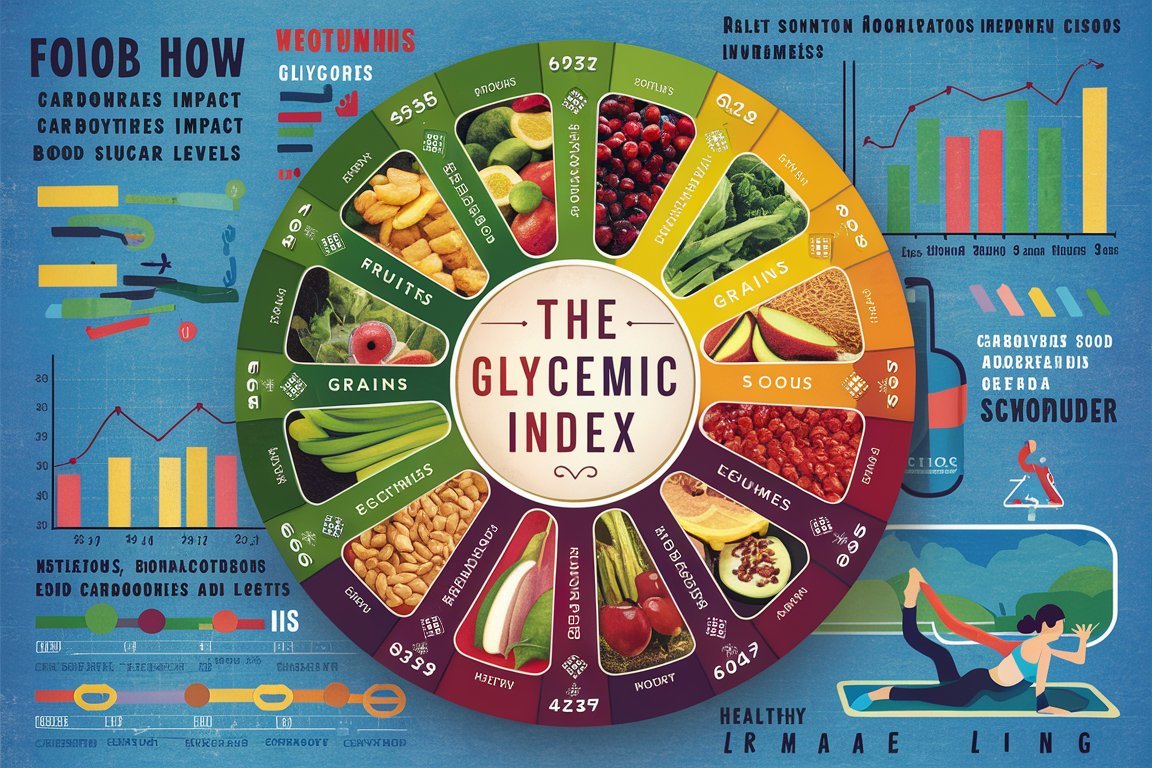
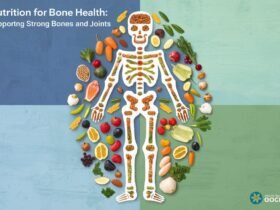




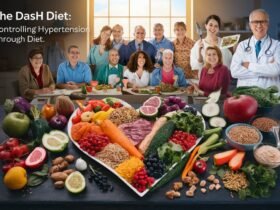
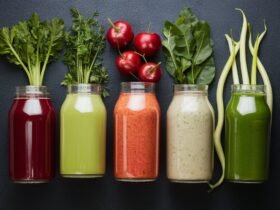
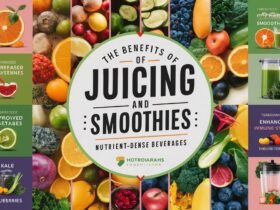
Leave a Reply